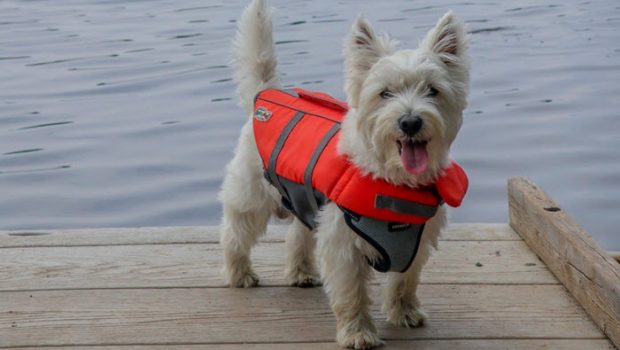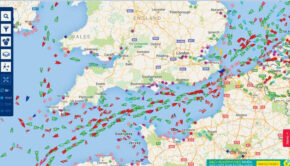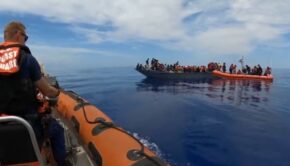Tips to ensure safety on the water
Published on May 23rd, 2022
The Coast Guard and Coast Guard Auxiliary celebrate National Safe Boating Week, May 21 through May 27, and urge mariners and beachgoers to be safe this Memorial Day weekend.
Memorial Day weekend is considered by many as the unofficial start to the recreational boating season. As boaters take to the water, there is an increased likelihood for search and rescue situations, mechanical failures, and accidents.
The 2020 recreational boating season saw an increase of boating accidents and deaths. Nationwide, recreational boating accidents that resulted in death exceeded 2019 by 24%. The months of June, July and August specifically saw the highest rate of on-water deaths from recreational boating in 23 years.
“Boating continues to be a relatively safe activity, but education is key. I encourage anyone who has not attended a boating education course to seek any of the several ones available through organizations such as the Coast Guard Auxiliary or the U.S. Power Squadron,” said Doug Leavell, Coast Guard District Eleven Recreational Boating Safety Specialist.
“Before you share the waterways, learn your responsibilities toward others on the water. Learn before you go out.”
New for 2022 is the focus on educating mariners on the new labeling of personal flotation devices (PFD). PFDs will no longer be labeled type one through five, but instead will be labeled with performance level, turn ability, and warnings. These new labels do not make any previously labeled lifejackets obsolete. More information on this topic can be found at New Life Jacket Labels – Safe Boating Campaign.
Additionally, as of April 20, 2021, regulation for disposable fire extinguishers mandates a 12-year expiration date from the date of manufacture. Boaters can find the manufacture date stamped into the bottom of the bottle or near the Underwriter Laboratory (UL) label. For more information on this topic, click here.
Last year brought new legislation that went into effect April 1, 2021, requiring the use of engine cut-off switches. This legislation is now enforceable and may result in a fine for failure to meet requirements. For more information on this topic, click here.
The Coast Guard recommends mariners heed the following safety tips below to help ensure their safety while on the water:
• Always wear a Coast Guard-approved life jacket while underway. 80% of boating deaths are due to drowning and 86% of those victims were not wearing a life jacket. People don’t typically have time to locate and don a life jacket during an actual emergency.
• Make sure your life jacket is properly fitted. People can slip out of ill-fitting life jackets when they hit the water, which decreases their chances of survival.
• Don’t drink and boat. Aside from wearing a life jacket, not drinking and boating is one of the easiest ways to prevent accidental deaths on the water. People operating vessels under the influence of alcohol, drugs or impairing medication pose a serious threat to you and anyone else aboard.
• Make a VHF radio your go-to means of communicating in an emergency. Cell phones may go out of range or lose battery power when needed most. Make sure you familiarize yourself with how to use it.
• Take a boating safety course. The Coast Guard Auxiliary is one of many organizations that offer valuable boating safety courses ranging from electronic navigation to boat handling. Click here to register for a boating safety course.
• Get a vessel safety check. The Coast Guard Auxiliary provides free boating safety checks. Get a free safety inspection from the Coast Guard Auxiliary to make sure you have all the gear and safety equipment required by your state and federal laws. Click here to find one near you.
• Look at the weather and tides before you head out. It might look like a nice day, but squalls and shifting tides can change suddenly.
• File a float plan. Tell someone where you’re going and when you’ll be back. Float plans provide a starting point to help find you if something happens.
• Dress for the water, not for the weather. Check water temperatures before you go out and dress accordingly.
• Know your navigation rules. Know how to properly navigate waterways and maintain lookouts to keep yourself and everyone else around you safe.
• Locator beacons can help us find you faster. Attaching a functioning emergency position indicating radio beacon (EPIRB) to your boat, or a personal locator beacon on your life jacket, and knowing how to use them can help rescuers find and help you. In order to be most effective, these should be registered with the owner’s information and emergency contacts.
• Label kayaks and paddlecraft. The Coast Guard often comes across adrift paddlecraft, and when they are properly labeled, it is easier for rescue personnel to confirm if there is an actual distress and save countless hours of searching when a person is not in distress.
• Check out the Coast Guard Boating Safety app. You can file a float plan, request assistance, request a vessel safety check, and report pollution and hazards to navigation.









 We’ll keep your information safe.
We’ll keep your information safe.